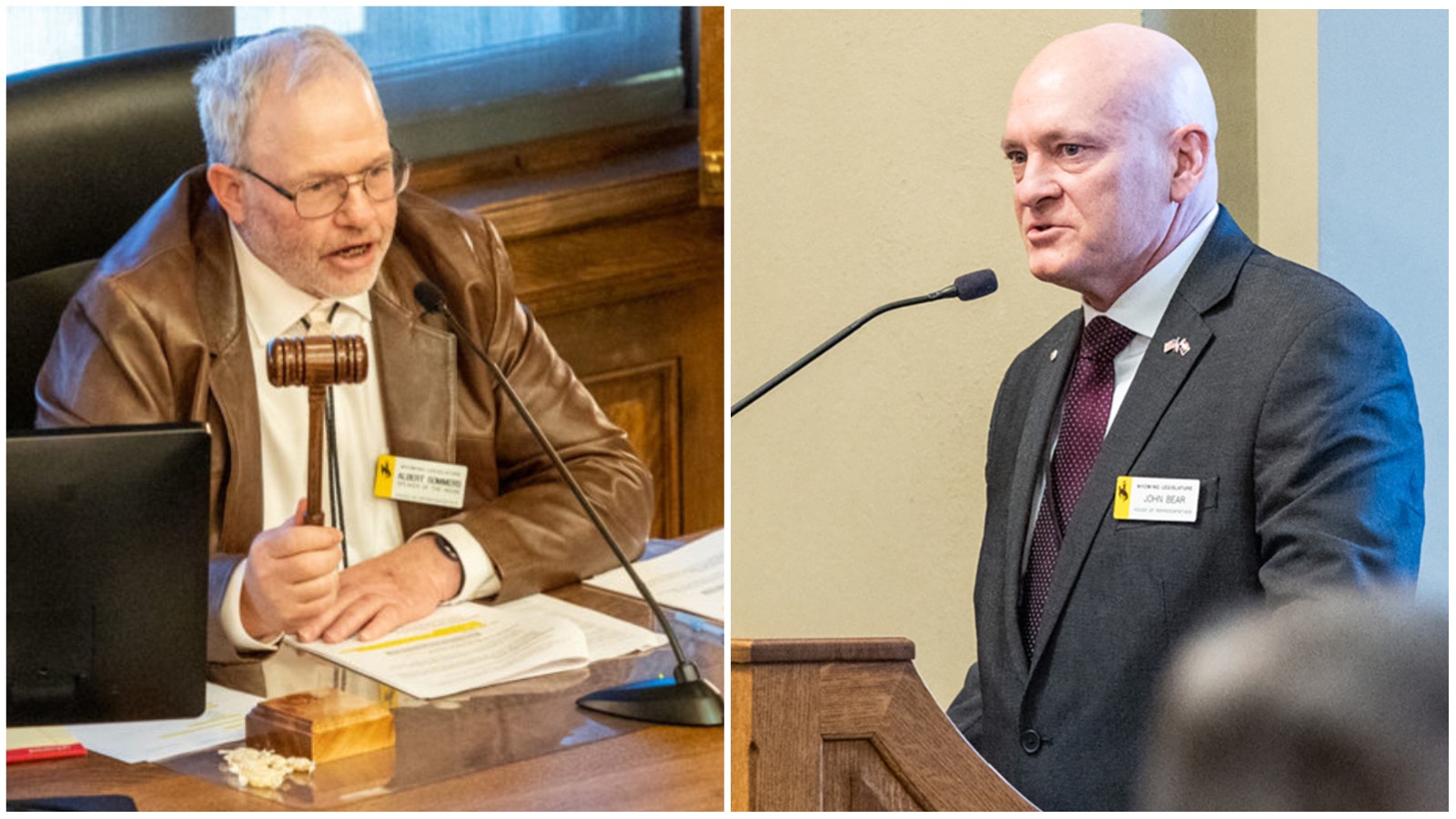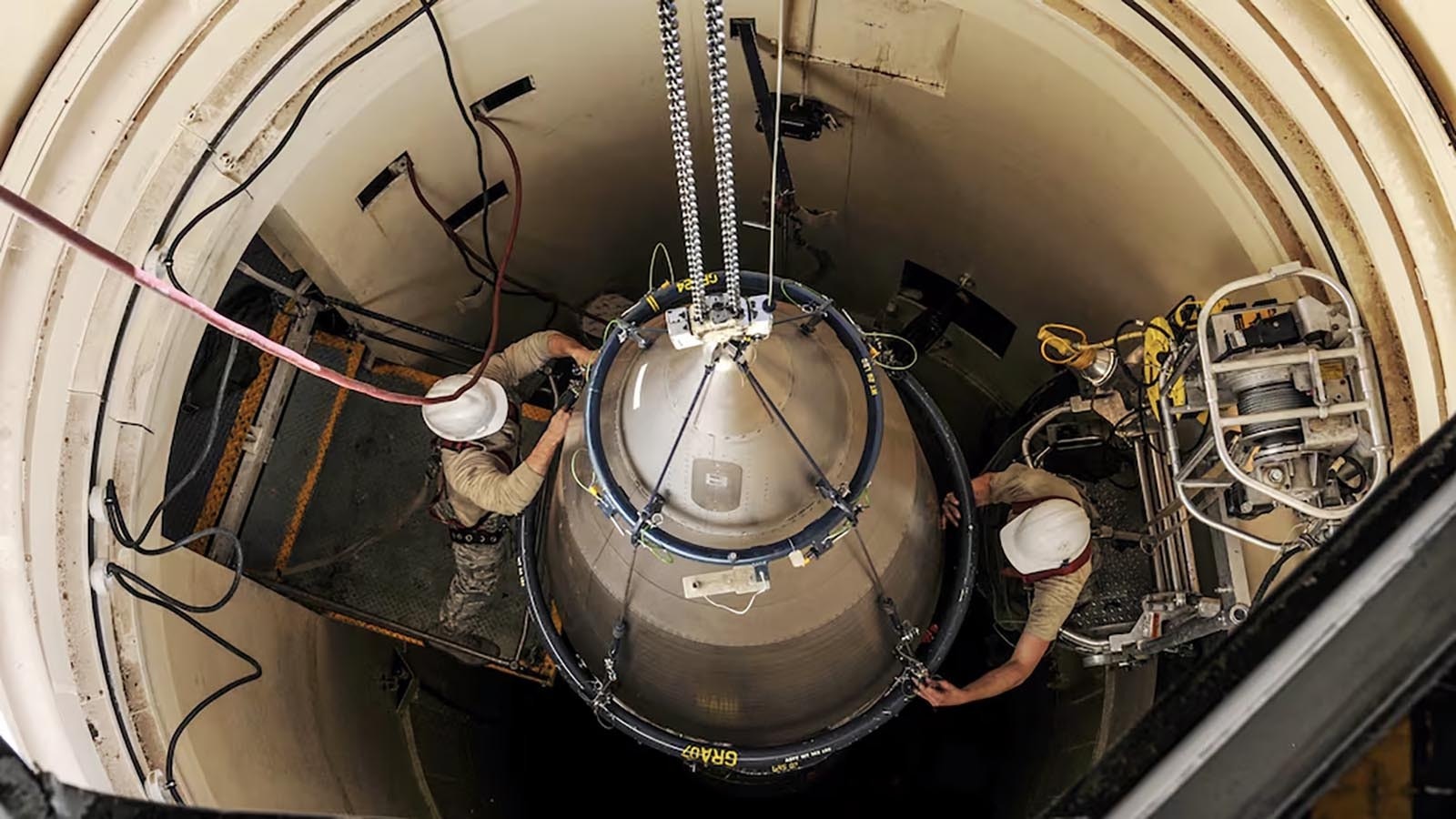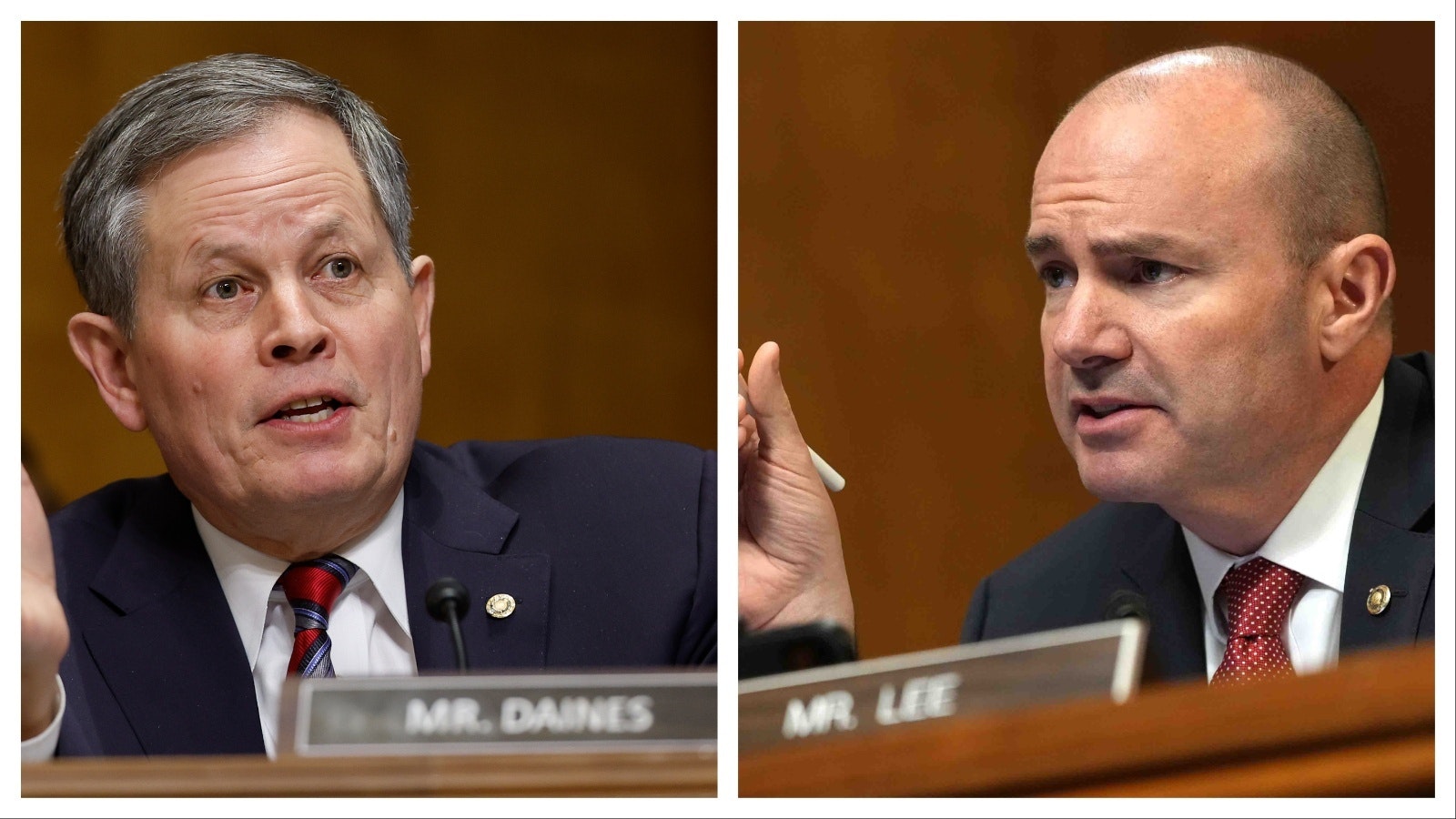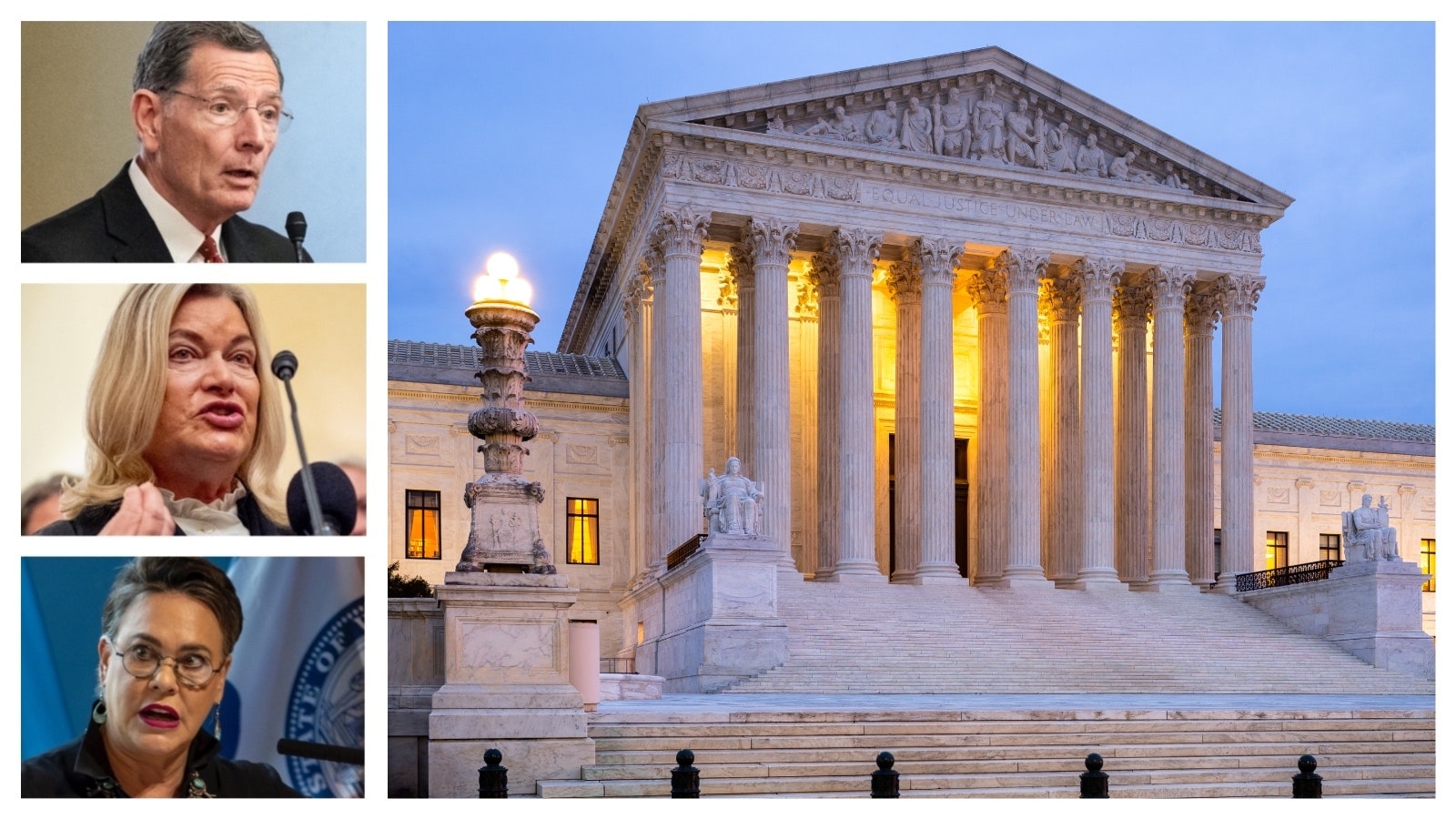Of the 21 bills brought during the Wyoming Legislature’s 2023 session to address skyrocketing property tax bills, only four passed into law.
Property tax relief was one of the most common campaign promises in 2022, and the Legislature failed to provide enough relief for Wyoming property owners, the caucus said during a town hall Tuesday night.
“We have to do something,” said Rep. Jeremy Haroldson, R-Wheatland. “People sent us to Cheyenne this January to fix the property tax issue and, sadly enough guys, that really didn’t happen.”
Haroldson described Wyoming as being in a “runaway property tax situation” as the state received about $500 million in increased revenue from property taxes last year.
“It’s out of control,” Haroldson said. “When your neighbor is buying a house for seven times you did a couple years back … we have a major issue.”
How To Fix It?
Wyoming has among the lowest property tax rates in the country and the lowest tax burden in the Rocky Mountain region when considering the Cowboy State has no income tax. But huge spikes in property tax assessments in recent years has skewed that in some counties.
“There are certain tax systems that would make sense compared to what we currently have, but our overall tax burden is still so flippin’ low,” Ashley Harpstreith, executive director of the Wyoming Taxpayers Association, told Cowboy State Daily.
Harpstreith said she supports overhauling Wyoming’s current tax structure but has concerns about only targeting property tax rates.
The level of assessment in Wyoming for residential property is 9.5% of the value of the property. So, if the market value of residential property is $100,000, taxes are not assessed on the entire $100,000 value. Instead, because of the 9.5% level of assessment, taxes are assessed on $9,500 of value. The 9.5% reduced level of assessment applies to residential and commercial property, but there are different levels of assessment for minerals, industrial and agricultural lands.
The state also has a property tax rebate program for those who economically qualify.
One of the four bills that passed this year expanded the class of people who can qualify for this program. House Speaker Rep. Albert Sommers, R-Pinedale, told Cowboy State Daily the passage of this bill was significant.
“We were able to give some immediate relief across the board to longtime residents,” said Sommers, who isn’t a Freedom Caucus member.
Who’s To Blame?
The five Freedom Caucus members in Tuesday’s town hall picked a few targets to blame for the lack of successful legislation, but most frequently focused on the roughly 31 other Republicans in the House who aren’t caucus members — and specifically state Rep. Steve Harshman, R-Casper, chairman of the House Revenue Committee.
Rep. Mark Jennings, R-Sheridan, said there hasn’t been cooperation from the “uniparty” wing of the Republican Party to pass any property tax measures, a move he describes as unethical. He believes the opportunity to spend state money is driving this.
“It’s been one of the most frustrating things that even when you work hard at things, like the cap, they still kill it,” Jennings said.
Rep. Tomi Strock, R-Douglas, said one of the shortcomings from the 2023 session on property taxes could also have been the surplus of bills brought, some of which were nearly identical in function. She believes condensing these down into four or five bills could lead to more success.
Sommers said he’s not sure why so many bills didn’t succeed, mentioning a few like his bill and another establishing a homestead exemption for primary residences that failed. He said he plans to bring his legislation again next year.
“Tax reform just takes a while,” Sommers said.
Cause And Effect
In most ways, property tax increases are a response to buying and selling trends in the housing market, Harpstreith said.
She said because of the influx of new residents from higher-priced areas in recent years, housing prices in Wyoming have correspondingly jumped in response to the new demand and transplants with more buying power from New York and California tend to possess.
The situation Haroldson refers to is happening across the country as the housing market has not cooled off despite rampant inflation and the COVID-19 pandemic being mostly over.
Property tax reform has been a topic that has reared its head a number of times with the Legislature over the past decade. Jennings blames the body’s inability to pass any significant legislation addressing the issue on spending.
Various ideas have been proposed over the years that involve putting caps on valuation increases, establishing a new class of assessments for residential property owners, and acquisition-based valuations.
Revenue Has To Come From Somewhere
Harpstreith’s biggest concern with property tax reform is making up for the loss of property tax revenue that goes toward public schools, county government, special districts, community colleges, and cities and towns.
Residential tax revenue made up 31% of all property tax revenue in Wyoming in 2022 at $459 million. Total property tax revenue in Wyoming increased from $1.2 billion to $1.7 billion between 2021 and 2022 and property tax revenue is expected to increase by 21% in 2023 to $557 million.
With declining mineral revenues expected in the future, Harpstreith said there needs to be revenue sources to at least keep Wyoming at a status quo.
“When you shift the burden off residential property taxes, you still have a need to figure out where your revenue is going to come from,” she said. “The concern is shifting the burden from one tax class to another and putting a significant pressure on an already unbalanced system.”
Harpstreith said she agrees with the Freedom Caucus about the intense burdens being placed on taxpayers and believes there needs to be more transparency as to how tax values are determined. She believes by removing mandatory mill levies that Wyoming would actually have a much more conservative taxation structure.
“That way you could control spending and the revenue side every year,” she said.
Tax Caps And Elections
Last year, some homeowners in Wyoming saw property tax increases by as large as 50% from the year prior.
This trend is only continuing into 2023, as Freedom Caucus Chairman Rep. John Bear, R-Gillette, said he recently learned he will face a 30% increase in his property taxes from 2022.
A property tax cap would put a ceiling on how much a homeowner’s property tax could grow per year, a measure Bear believes would provide Wyoming residents the most immediate relief. Sommers said he’s not sure how he feels about tax caps and needs to study the issue more.
Any constitutional amendment in Wyoming needs to be approved by voters, a process that takes a few years from the time the Legislature passes an amendment proposal until it goes into effect.
But there are varying perspectives on whether developing a cap would require a constitutional amendment. Jennings believes the Legislature could unilaterally direct the Wyoming Department of Revenue to make this change.
In the event this legislative change could be struck down in court, Jennings said a constitutional amendment proposal could then be brought to voters in a ballot referendum.
Another bill that died was sponsored by Sen. Bo Biteman, R-Ranchester, and would have reduced the residential property tax rate from 9.5% to 8.5% through 2025, an approach Harpstreith said she supports.
Cities And Towns Dig In
Bear said local government groups like the Wyoming County Commissioners Association and individual cities and towns opposed most of the property tax measures.
“They have a vested interest to make sure their revenue streams continue to flow,” he said.
Bear believes there is a direct correlation between increased property taxes and increased costs of goods, causing a permanent burden on homeowners even after they pay their personal property bills.
Another bill proposed during the 2023 session would have allowed homeowners to chop $50,000 off their home’s assessed valuation. Bear said this bill would serve as an antithesis to giving a tax break to the wealthy and mentioned how an older mobile home could possibly be exempted from all property taxes.
“Obviously, the lower the value of your home, the higher that reduction would be,” he said.
The bill never advanced out of the House Revenue Committee.
Another that was killed by the Senate Revenue Committee was Worland Republican Rep. Martha Lawley’s bill that would have let residents defer a larger amount of their property taxes each year.
Different Classes
Another possible fix would be to create a new class of property tax assessments solely for residential properties.
A bill crafted by the Joint Revenue Committee during the 2022 interim session established a fourth class of taxation and a cap but was never considered in the House Revenue Committee during the 2023 general session.
Instead, House Joint Resolution 2, a bill sponsored by Sommers and Harshman, which solely established a fourth class for residential properties, was considered. Although Sommers supported an amendment to add a cap to the bill it was voted down.
The bill advanced out of committee and on third reading in the House, an amendment adding a tax cap onto the bill was brought again. The amendment was defeated again on a close vote.
“The other side fought very, very hard and they made it very clear they have no desire to be able to cap the increase in property taxes on our people,” said Rep. Tony Locke, R-Casper.
Although some may see the establishment of a fourth class as progress, Locke saw it as a hindrance to making meaningful change and voted against the bill, which eventually died after failing to receive the ⅔ majority needed to ask voters for a constitutional amendment.
Senate Joint Resolution 3 as originally written established a property tax exemption and new class for the elderly and infirm. An amendment was added to make it similar to HJ 2 and remove the elderly and infirm aspect.
SJ 3 passed into law and will ask voters if they would like to establish a fourth class of taxation for residential.
“We’ll keep talking about why that’s not a good idea, but ultimately, you’re going to vote on it, and you’re still not going to see any tax relief,” Bear said.
Locke said the creation of a fourth class doesn’t do anything by itself and has the potential to actually increase taxes down the road. He said the Freedom Caucus will push hard during the interim session to get a property tax cap put back into future legislation.
“It certainly gives us at least an initial step where we have the potential of putting something in the way of this shooting up every year,” he said.
But by creating a separate class for residential, the Legislature could then lower the 9.5% assessment rate to a lower value without needing to do a constitutional amendment, Harpstreith said.
Acquisition-Based
An acquisition-based tax structure would drastically alter the entire taxation structure in Wyoming and would require a constitutional amendment.
Under this structure, the price a person buys a home for would set its permanent tax base. It would not include any future investments made to a home such as a deck or new garage. It’s similar to how vehicles are taxed.
Locke said if the Freedom Caucus “had the votes,” the state would likely take this approach, rather than the current tax structure he described as “designed to steal your property.”
“That's the true reform approach here to try and give people a break,” he said.
One of the three bills passed this year funds an acquisition value property tax study.
“We were glad it did make it through,” Jennings said.
Agriculture Assessments
Strock said through conversations with State Treasurer Curt Meier, she’s learned that county assessors are making assessments beyond fair market value factors and are taking into account more minute details like how much cattle is owned and what pastures they’re being run on.
“We can’t make a living on what’s being taxed,” she said. “It’s not even on what we can use it for.”
Haroldson said the state needs to protect those in the agriculture industry, a long-storied part of Wyoming heritage that isn’t always a lucrative enterprise.
Sommers and Harpstreith said they believe property taxes will be one of the biggest issues discussed in the upcoming budget session.
Contact Leo Wolfson at Leo@CowboyStateDaily.com





